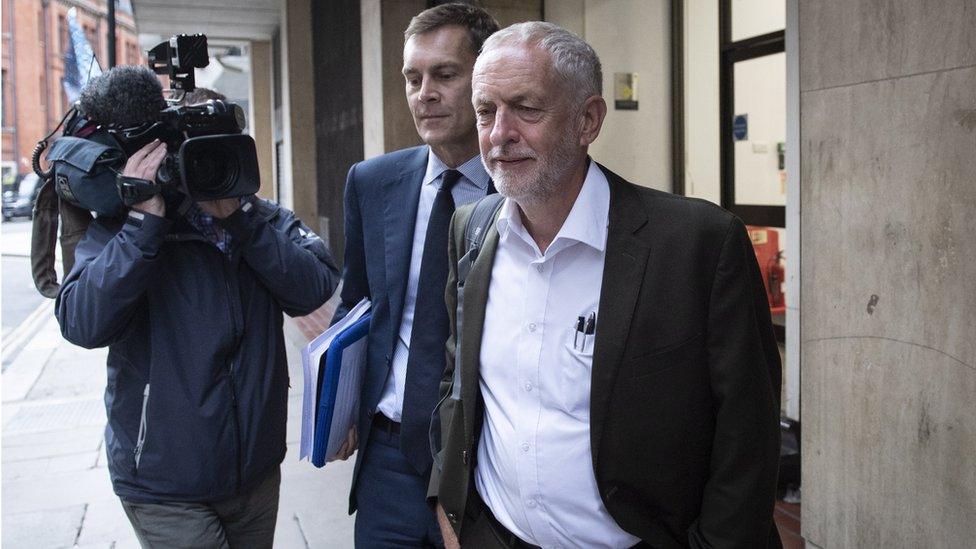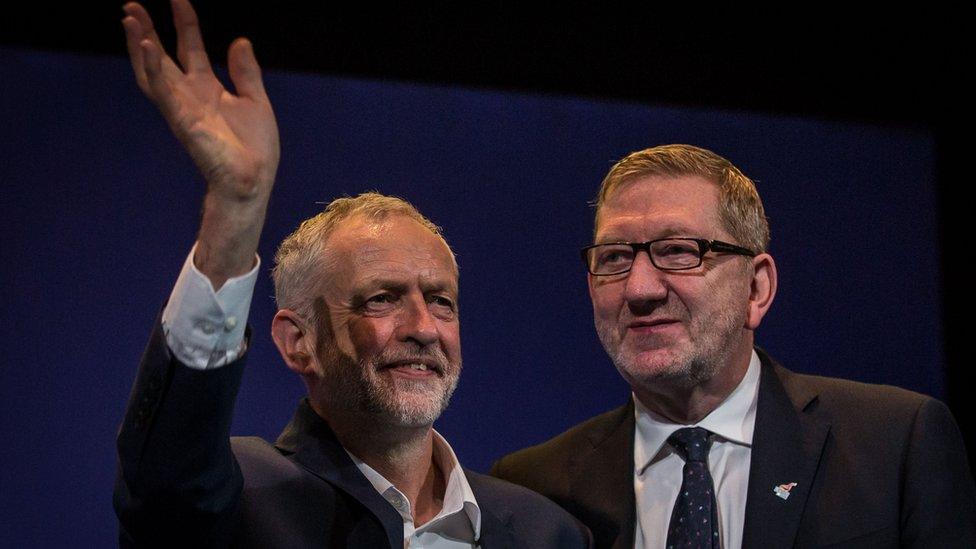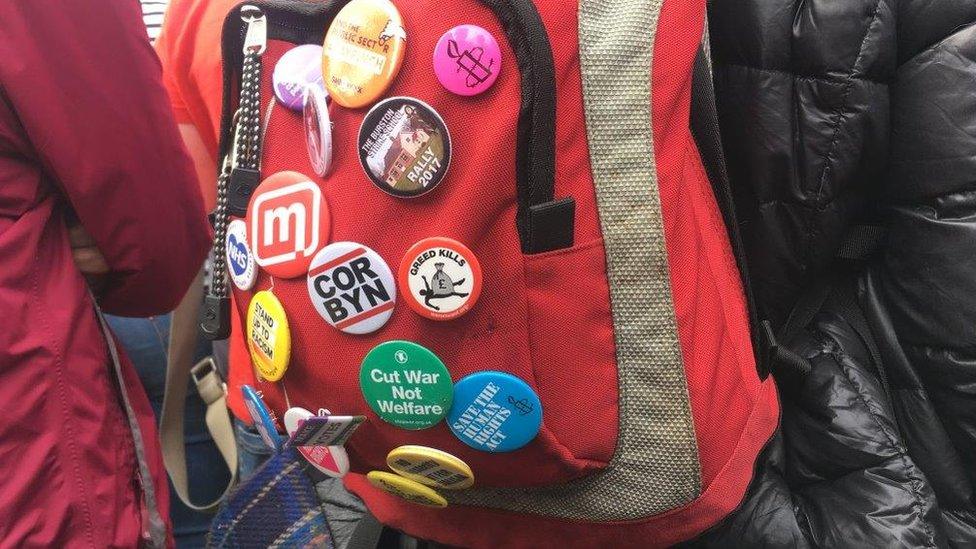Labour's democracy review - how democratic is it?
- Published

Labour's executive is currently meeting behind closed doors - to discuss ways of making the party more democratic.
But some members are unhappy with what they see as a possible power grab by some of the big unions who control 50% of votes at next week's conference.
Discussions will focus on what changes are needed to the party's rules in order to implement proposals from the year-long democracy review.
The conference will then vote to approve or reject them.
There is a left-wing, pro-Corbyn majority on the National Executive Committee (NEC) but some issues have proved divisive even within the left.
Momentum - the group set up to support Jeremy Corbyn's leadership - has been pushing for 'open' parliamentary selections.
This would allow parliamentary hopefuls to compete against any sitting MP between general elections for any Labour nomination.
But some unions - also under left-wing control - believe this would diminish their role in the process of choosing MPs.
So I am told a compromise is being brokered.
Currently for a sitting MP to be challenged, 50% of their local party branches have to agree - and that includes not just branches consisting of individual party members, but branches of 'affiliated' trade unions, too.
In other words, those unions that pay for a link to the Labour Party such as Unite and the GMB.
Under the compromise plan, a contest would be triggered if just 30% of union or party branches agree.
So the existing system of selections would be reformed rather than swept away.
Part of the union
There has, however, been a further wrangle over the compromise.
The democracy review was sold as a way of empowering the membership and some on the left are fearful that it will instead further empower trade union leaders.
Some local trade union branches have very few members while many of the branches consisting of fully-paid up individual party members are much larger.

Unite leader Len McCluskey is a close ally of Jeremy Corbyn
So a relatively small number of trade unionists could trigger a re-selection contest since it would be much easier to get 30% of trade union branches to give the sitting MP the thumbs down than 30% of the (often much larger) membership branches.
There had been talk of a further compromise - giving less weight to smaller union branches.
On the latest information I have, it looks like this further proposal may have been dropped.
One NEC member suggested privately that the "compromise" - rather than either protecting sitting MPs or giving members a much greater say - would in effect allow Unite chief Len McCluskey "to pick off whoever he wants".
So even the "compromise" hasn't been agreed.
Not knowingly undersold, one insider said "it could be war".
Follow the leader
There has also been a change to the initial proposal for selecting Jeremy Corbyn's eventual successor.
What was floated at the last meeting of the NEC was a new system which would allow a candidate to get nominated with the backing of just 5% of MPs (the current threshold is 10%) so long as either 10% of local constituency parties, or 10% of unions, also nominated them.
Today the NEC will discuss a new proposal - a future leader would require not only the support of 10% of MPs and local parties but would now also require the support of two trade unions that account for 5% of 'affiliated' members.
Complicated as that is (and believe it or not, I have simplified the options) the upshot is that a leadership candidate wouldn't get on the ballot without the backing of some big unions.
And some Momentum activists are complaining that this would skew power away from rank and file party members and are pledging to oppose it.
Momentum has been pressing its members to deluge the NEC with emails calling for the leadership threshold to be reduced to 5% of MPs and for any compromise on parliamentary selections to be ditched.
"Their phones are imploding under the weight of emails," one source said.
The NEC is likely to be expanded to include, specifically, party members with disabilities and those from an ethnic minority background. But the proposal today is that these new places will be elected equally by unions and rank-and-file members, not just by the party membership alone.
Local authority
After the last NEC meeting, a Corbyn-sceptic told me he had "kicked into the long grass" a proposal that the leaders of local authority Labour groups would be elected by the wider membership and not just by councils.
Well, someone has got the political lawnmower out, because it's back on the agenda now.
And local government manifestos might be drawn up not by councillors but wider local government committees which include trade union nominees.
Pretty vacant?
Under the current system when an NEC place chosen by the members (the unions, councillors, shadow cabinet and MPs/MEPs have their own dedicated places) becomes vacant, the runner up in the annual elections is automatically promoted onto the NEC.
I understand an NEC member is considering standing down and that would mean comedian Eddie Izzard (who wasn't supported by the left) would be elevated. But under proposals to be discussed today a by-election, seen as unnecessarily expensive by opponents, would be held in future - increasing the chance of a left-wing replacement
A proposal to have existing NEC members choose amongst themselves who joins them has been dropped.
Democracy is coming?

Clearly there are plenty of issues still to be agreed, but whatever backroom deals are done, or compromises concluded, it's likely by the end of Labour conference that it will be easier to replace sitting MPs and that it's even more likely that someone on the left (not necessarily the so-called 'hard left') will replace Jeremy Corbyn when the time comes.
And that the tension between a vision of a "members-led" party which Momentum has been advocating, and one where the big trade unions retain power, will continue.